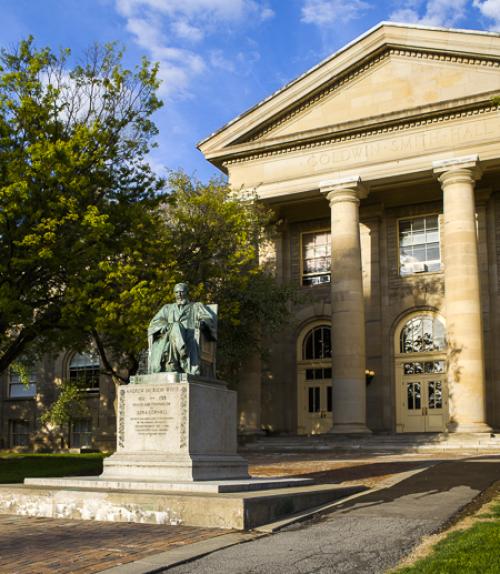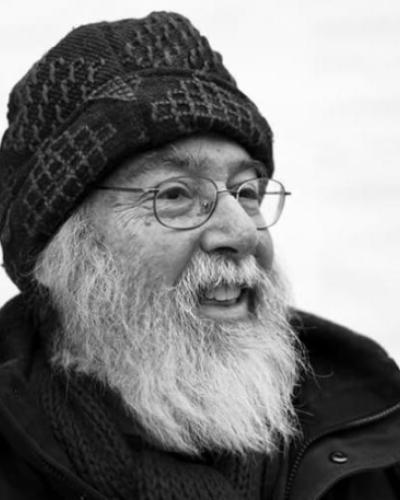The Math Department is saddened to share that our colleague and friend Professor Robert Strichartz died on December 19, 2021, after a long illness. He was 78.
Bob Strichartz earned his B.A. from Dartmouth College in 1963 and his Ph.D. from Princeton University in 1966, where he worked with Elias Stein. His thesis was entitled, Multipliers on Generalized Sobolev Spaces. He was a NATO postdoctoral fellow at Orsay from 1966-1967, and then a C.L.E. Moore Instructor at MIT from 1967 to 1969. Bob was appointed Assistant Professor of at Cornell in 1969, Associate Professor in 1971, and Full Professor in 1977. Over the years at Cornell, he played a significant role on our Outreach Committee, Math Club Committee, and Math Majors Committee. Bob was the driving force behind the department's REU, he founded the Math Explorers Club that reaches local middle and high school students, and he mentored nine PhD students and many undergraduate researchers.
Bob Strichartz was an acclaimed analyst. MathSciNet has indexed 189 of his books and papers. It indicates 4,413 citations of his work. His most highly cited paper, Restrictions of Fourier transforms to quadratic surfaces and decay of solutions of wave equations, has been cited 611 times. In this paper, Bob proved sharp, scale-invariant Lp estimates for solutions of dispersive partial differential equations (such as Schrödinger or wave equations) in terms of the L2 norm of their initial data. These estimates are now called Strichartz estimates in his honor. MathSciNet identifies 1206 articles and books that reference them.
There is no better way to describe Strichartz’s early career, than to mention his yearlong stay in Paris. His PhD advisor Stein was also in Paris and delivered a legendary course on harmonic analysis at the University of Paris Sud (Orsay) captured in the equally famous book, Singular Integrals and Differential Properties of Functions. Bob’s thesis on spectral multipliers acting on fractional Sobolev spaces includes new descriptions of these spaces and fits perfectly with the spirit of Stein’s book.
An original thinker with broad interests, Bob made influential contributions to many subjects including classical harmonic analysis (e.g. Radon transform), its application to partial differential equations (e.g., the famous Strichartz estimates concerning solutions of the wave equation), spectral and geometric analysis (e.g., Analysis of the Laplacian on the complete Riemannian manifold and sub-Riemannian geometry), and non-commutative harmonic analysis. Later, he developed a deep interest in wavelet theory and in the analysis of self-similar measures. This last subject led him to the study of fractals as geometric and analytic objects. This became his research focus, and he had a tremendous influence on the development of the area through many deep formal and informal collaborations. He also used it successfully for over twenty years as a training ground and introduction to mathematical research for undergraduate students who explored fractal objects under his supervision.
Bob was committed to mentoring and training students. He was eager to turn elementary- and middle-school students into mathematical thinkers. He wanted to engage our math majors with a wide-ranging short course called Totally Awesome . Bob’s textbooks The Way of Analysis and Differential Equations on Fractals are renowned for their friendly style that pulls in the reader and develops intuition as well as rigorous theory. Bob was also keen to nurture a friendly atmosphere in our Department, bringing us together for Cornell apples at our weekly Lunch in the Lounge, where we would talk informally about challenges facing the Department or just catching up with each other.
Bob Strichartz is survived by his wife Naomi, his son Jeremy, his daughter Miranda, two granddaughters, and a step-granddaughter. Due to the ongoing COVID outbreak in Tompkins County, there will not be an immediate gathering to celebrate Bob’s life. There may be a memorial planned for the summer, to coincide with the Fractals Conference.





